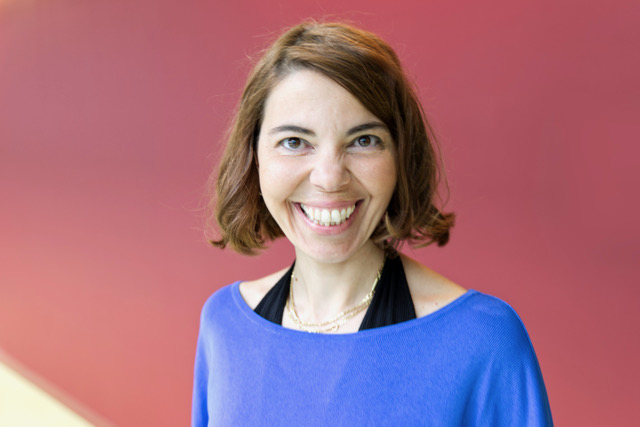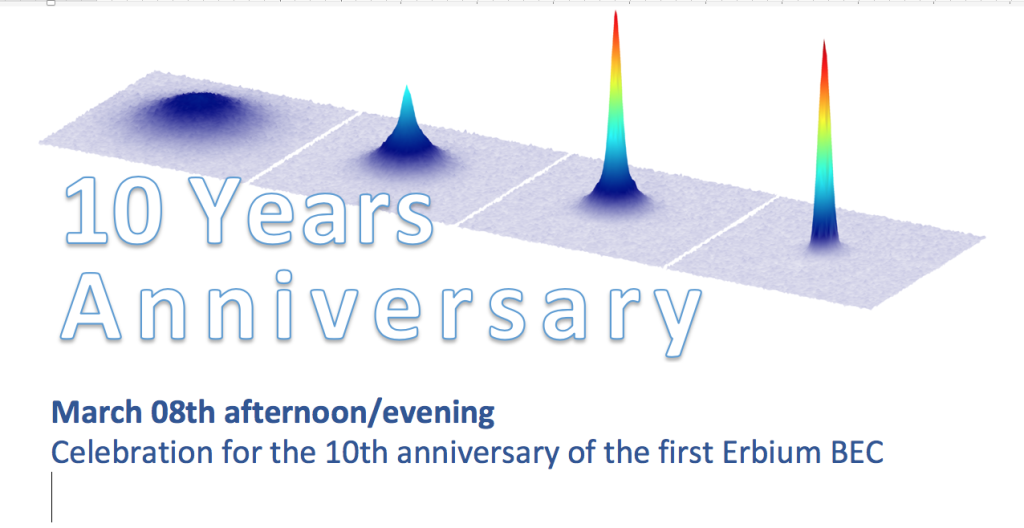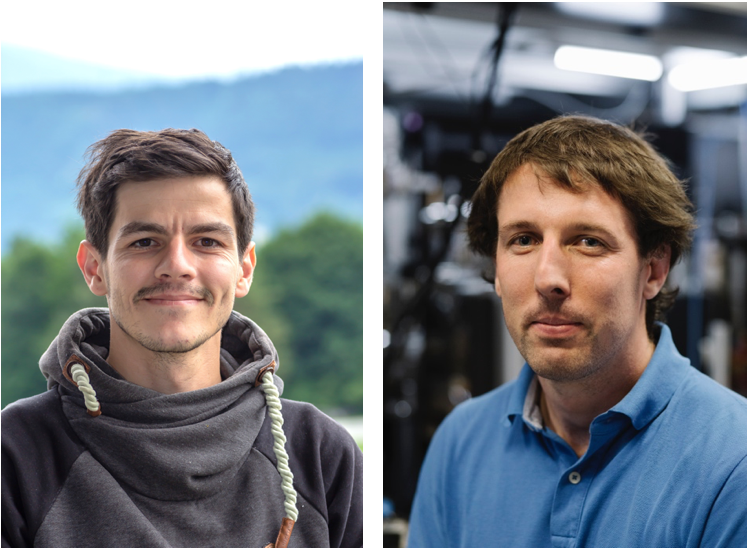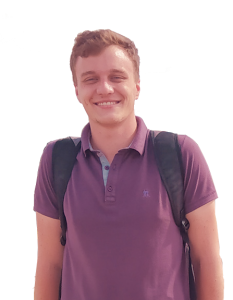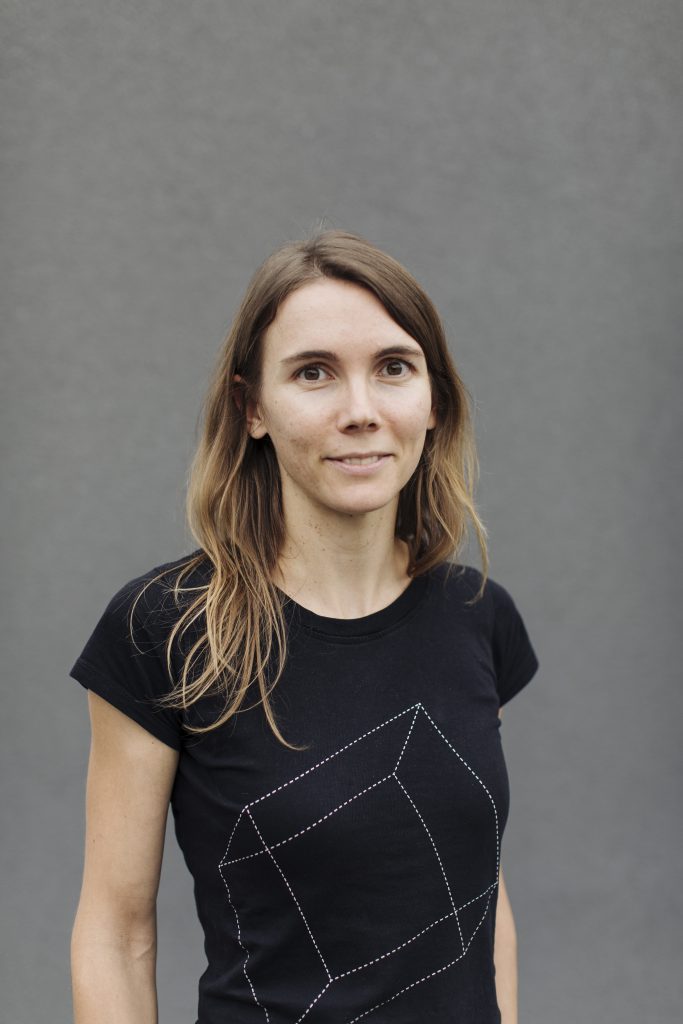
Aurora Program for Master and PhD students
Apply now for the Aurora excellence fellowship program for visiting Master and PhD students! Travel expenses and accommodation will be fully covered. More information in the “Openings 2026” menu.

Welcome to the Quantum World!
Our group travelled to the Vienna City Hall for “Willkommen Quantenwelt” celebrating 100 years of quantum science. Thanks to Quantum Science Austria and collaborators for organizing this fantastic event!

2025 Group Openings!
We are happy to announce that our dipolar quantum gas group has an Academy Scientist + Postdoc and PhD positions open for 2025!

“Dance your PhD 2025” contest by Science and AAAS
Congratulations to our PhD student Arfor, who turned our research topics into a dazzling music video!

Vortices in a supersolid
2024’s Biggest Breakthroughs in Physics: Our research on the observation of vortices in a dipolar supersolid featured by Quanta magazine!

Austrian of the Year 2024
Francesca was crowned as the ‘Austrian of the Year’ in the research category at the Austria 24 gala by Die Presse!

Summer BBQ
Our 2024 Summer BBQ took place on the 24th of June and celebrated the many different achievements of the group!

Murder Mystery Dinner
Our 2024 group dinner took place on the 18th of January at CasoinN da Giorgio restaurant, with a 1920’s Murder Mystery theme!

Glitches in supersolids: links between neutron stars and quantum matter
By emulating the connection between a rotating supersolid phase and an external solid phase, we were able to replicate “glitches” – sudden jumps in the solid angular momentum driven by quantum vortices leaving the supersolid.

Cluster of Excellence Quantum Science Austria granted
Three Clusters of Excellence in Innsbruck have been funded! With highly endowed clusters of excellence, the Austrian Science Fund FWF creates Austrian flagships of basic research. The University of Innsbruck will coordinate the Cluster of Excellence for Quantum Sciences.
Our group studies dipolar quantum gases made of Erbium (Er) and Dysprosium (Dy) atoms. These extraordinarily magnetic species are a powerful new resource for reaching quantum simulation with strong connectivity, in which each atom is coupled to the other over long distances, and exploring exotic phases of matter that have no classical counterpart.
We have four labs: the ERBIUM LAB, where Er was Bose condensed for the first time ever; the Er-Dy LAB, which studies quantum dipolar mixtures under a quantum-gas microscope; the T-REQs LAB, where we trap Er atoms in arrays of optical tweezers for Rydberg physics; and the Dy-Yb LAB, currently under construction – this new experimental apparatus will be used to study many-body phases of highly-magnetic dysprosium and of mixtures with non-magnetic ytterbium. The Theory Group completes our team studying and predicting dipolar phenomena in dipolar quantum gases and mixtures.
The group, led by Francesca Ferlaino, is jointly located at the Institute for Experimental Physics (IExP) of the University of Innsbruck and at the Institute for Quantum Optics and Quantum Information (IQOQI) of the Austrian Academy of Sciences, and it is part of the Innsbruck Center for Ultracold Atoms and Quantum Gases.
Follow our group’s updates on Bluesky  and LinkedIn
and LinkedIn  !
!
News from the labs
Now in Physical Review A! In collaboration with our theory colleagues from Paris (M. Lepers, J.-F. Wyart and O. Dulieu) we have determined the dynamical polarizability of ultracold erbium atoms in the ground and in one excited state at three particular relevant wavelengths.
Keep Reading ...
n experiments with magnetic atoms conducted at extremely low temperatures, scientists have demonstrated a unique phase of matter: The atoms form a new type of quantum liquid or quantum droplet state. These so called quantum droplets may preserve their form in absence of external confinement because of quantum effects. The
Keep Reading ...
Now in Physical Review X! Together with our theory colleagues from Hannover (Luis Santos and Falk Wächtler), we have investigated the formation of a macrodroplet state in an ultracold bosonic gas of erbium atoms. Our paper has been now published in PRX and featured in Physics!
Keep Reading ...
Group news
Registration is now open for the Long-range interactions in the ultracold 2022. The three -day conference is fully in presence and will take place 06-09 September in Innsbruck, Austria.
Keep Reading ...
Francesca Ferlaino, professor at the University of Innsbruck, Austria, and scientific director at the Institute for Quantum Optics and Quantum Information (IQOQI) of the Austrian Academy of Sciences receives an ERC Advanced Grant, the highest European funding for established scientists in basic research.
Keep Reading ...
On the International Women's Day March 8, 2012 a team led by Francesca Ferlaino created the very first BEC from highly-magnetic erbium atoms in their lab at the University of Innsbruck.
Keep Reading ...
Welcome and goodbye
Farwell to Daniel Petter and Philipp Ilzhöfer, who obtained their PhD toward the end of 2020 and are now heading for new challanges. We wish you every success in your future life!
Keep Reading ...
Welcome to Daniel Grün, who is joining the Erbium team in the frame of our Excellence Fellowship for master students.
Keep Reading ...
After 5 productive years in the Dipolar Quantum Gas Group, Lauriane Chomaz is moving to the University of Heidelberg as Tenure-Track Professor. Congratulation Lauriane! We wish you great success in your next adventure in physics
Keep Reading ...
 and LinkedIn
and LinkedIn ![]() !
!












